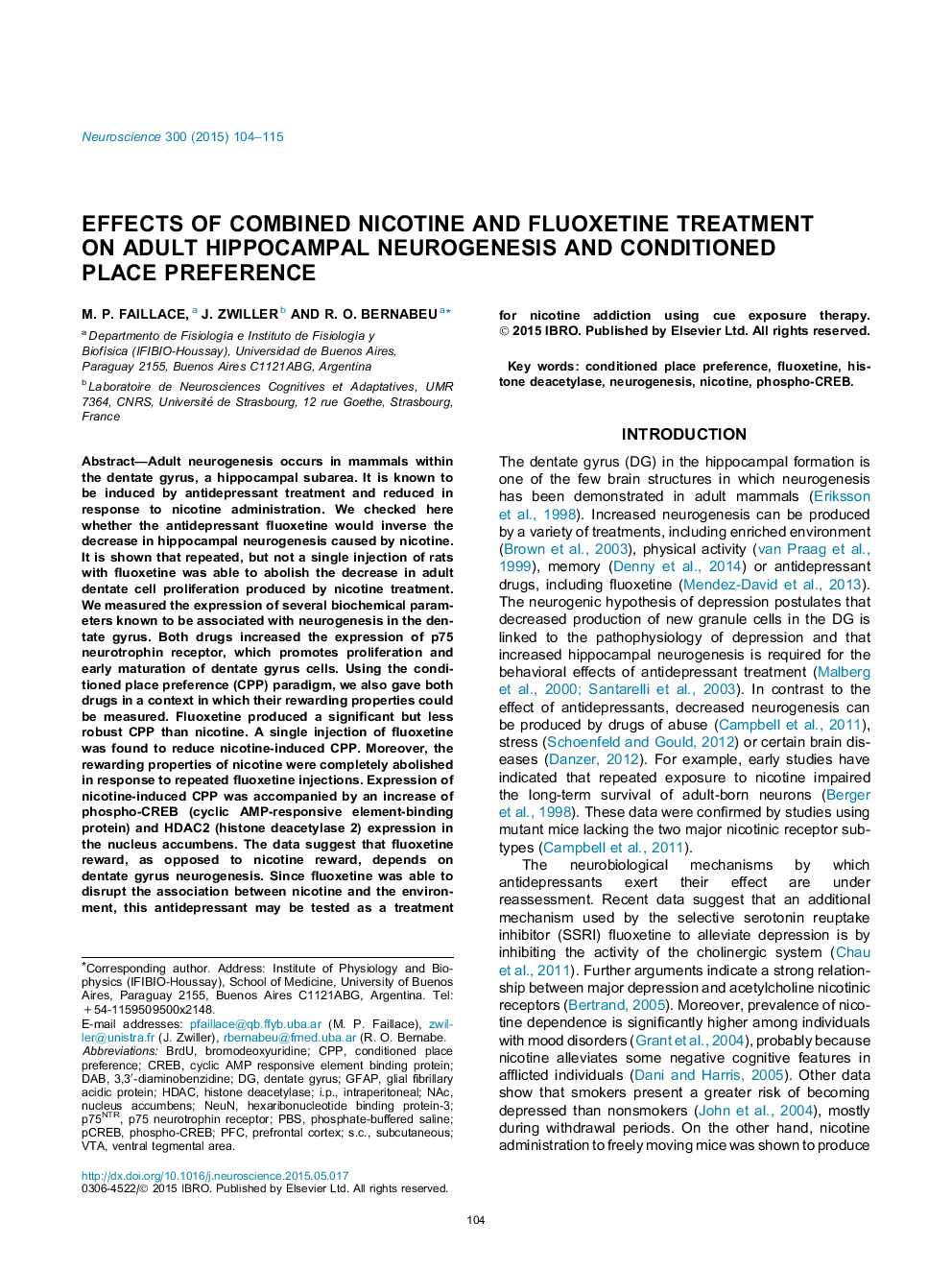| کد مقاله | کد نشریه | سال انتشار | مقاله انگلیسی | نسخه تمام متن |
|---|---|---|---|---|
| 6271958 | 1614776 | 2015 | 12 صفحه PDF | دانلود رایگان |
- Fluoxetine counteracts the inhibition of neurogenesis induced by nicotine in adult DG.
- Fluoxetine induces a significant CPP, but to a lesser extent than nicotine.
- Fluoxetine treatment is able to abolish nicotine-induced CPP.
Adult neurogenesis occurs in mammals within the dentate gyrus, a hippocampal subarea. It is known to be induced by antidepressant treatment and reduced in response to nicotine administration. We checked here whether the antidepressant fluoxetine would inverse the decrease in hippocampal neurogenesis caused by nicotine. It is shown that repeated, but not a single injection of rats with fluoxetine was able to abolish the decrease in adult dentate cell proliferation produced by nicotine treatment. We measured the expression of several biochemical parameters known to be associated with neurogenesis in the dentate gyrus. Both drugs increased the expression of p75 neurotrophin receptor, which promotes proliferation and early maturation of dentate gyrus cells. Using the conditioned place preference (CPP) paradigm, we also gave both drugs in a context in which their rewarding properties could be measured. Fluoxetine produced a significant but less robust CPP than nicotine. A single injection of fluoxetine was found to reduce nicotine-induced CPP. Moreover, the rewarding properties of nicotine were completely abolished in response to repeated fluoxetine injections. Expression of nicotine-induced CPP was accompanied by an increase of phospho-CREB (cyclic AMP-responsive element-binding protein) and HDAC2 (histone deacetylase 2) expression in the nucleus accumbens. The data suggest that fluoxetine reward, as opposed to nicotine reward, depends on dentate gyrus neurogenesis. Since fluoxetine was able to disrupt the association between nicotine and the environment, this antidepressant may be tested as a treatment for nicotine addiction using cue exposure therapy.
Journal: Neuroscience - Volume 300, 6 August 2015, Pages 104-115
